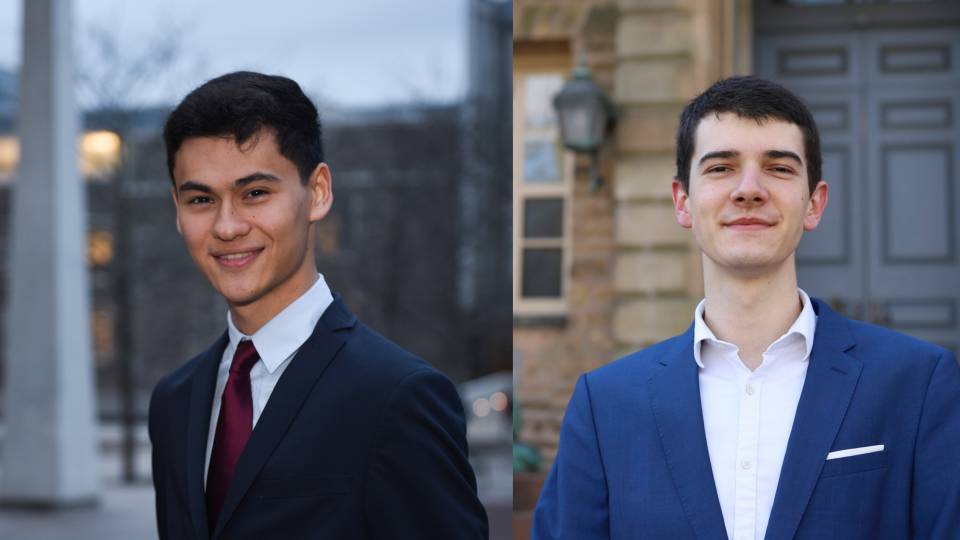Princeton University senior Nikhita Salgame has been awarded a Gaither Junior Fellowship, which gives graduating seniors an opportunity to work as research assistants to scholars at the Carnegie Endowment for International Peace. Benjamin Press, a 2020 graduate, received the award in 2020.
They were among a select group of students from around the country chosen for the James C. Gaither Junior Fellows program, each specializing in a different topic or region. Salgame will join the Carnegie Endowment’s Democracy, Conflict and Governance program, where Press worked this past year.
Nikhita Salgame

Nikhita Salgame
Salgame, of Princeton, New Jersey, is a concentrator in the School of Public and International Affairs (SPIA) and is also pursuing certificates in East Asian studies, and the history and the practice of diplomacy. She is part of Princeton’s Scholars in the Nation’s Service Initiative (SINSI).
She was an intern at the 2X Initiative at the U.S. International Development Finance Corporation and the Brookings Institution in Washington, D.C., where she worked on foreign policy. She also interned at the Pesticide Eco-Alternatives Center in Kunming, China.
“As a student of international affairs, my academic interest in authoritarian political systems like China’s has guided my belief that while democracy worldwide is under serious threat, governments and civil society alike have an increasingly consequential role to play in protecting basic dignity and human rights,” Salgame wrote in her fellowship application. “My own independent research, whether quantifying gender bias in an authoritarian judicial system or questioning the ethics of voluntary return programs in European migration policy, has reinforced my desire to conduct research that could one day shape just and effective policy.”
On campus, Salgame was a core team member for Give Essential, which helps essential workers affected by COVID-19, and an organizer for Princeton IX Now, which advocates for reforming the Title IX process. She was a representative on SPIA’s Student Advisory Committee and a volunteer for El Centro. She also served as co-president of the Princeton U.S.-China Coalition.
“Nikhita is one of the most impressive students I have ever come across,” said Rory Truex, assistant professor of politics and international affairs. “She has the full set of skills required for a promising career in academia or public service: a top-flight intellect, humility, dedication for others, integrity and natural leadership ability. She is the best Princeton University can produce.”
Benjamin Press

Benjamin Press
Press was a history concentrator and earned certificates in medieval studies, and history and the practice of diplomacy. In 2020, he received the Moses Taylor Pyne Honor Prize, Princeton’s highest undergraduate honor. He is from Vienna, Virginia.
He was an intern at the U.S. Department of State’s Bureau for Democracy, Human Rights and Labor, and a political participation and representation intern at the International Institute for Democracy and Electoral Assistance in Stockholm. He was a senior policy intern for a candidate for lieutenant governor of Virginia and a Walter and Leonore Annenberg Fellow at the Council of American Ambassadors in Washington, D.C.
“Our approach to democracy promotion is not working, and I am committed to doing something about it,” he wrote in his application. “I’ve come to realize that the prevailing model is divorced from broader strategic aims and has often prioritized short-term successes over long-term institutional change.”
On campus, Press was chair of the Undergraduate Student Government, deputy team captain for the Princeton Model United Nations Team, and chair of the Butler College Council. He was a fellow for The Center for International Security Studies and the James Madison Program in American Ideals and Institutions. He received the 2018 Shapiro Award for Academic Excellence.
“Mr. Press is a gifted writer, his prose elegant, his argumentation trenchant, his views invariably measured, his quest for evidence insatiable,” said Stephen Kotkin, the John Birkelund ’52 Professor in History and International Affairs. “He wields his fine historical sensibility as a tool, rather than an end in itself, and grounds his policy analyses within the possibilities and limits of real institutions.”






